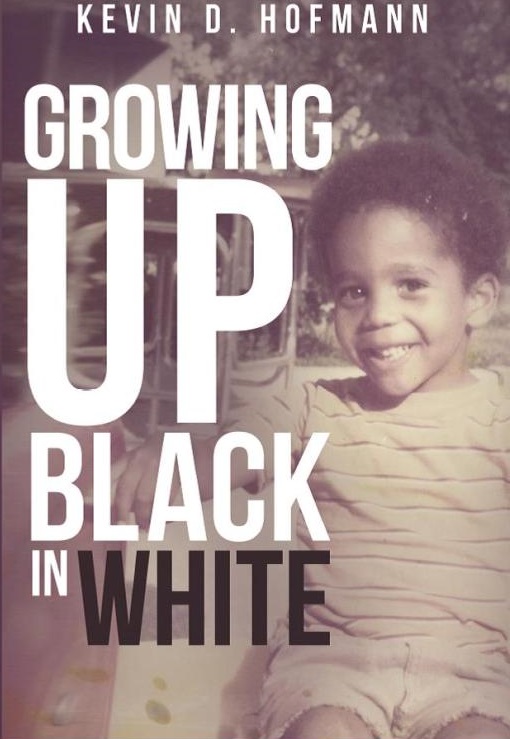Author Hopes to Educate Social Workers About Challenges of Transracial Adoptions

Book cover
Kevin Hofman knew his was an unusual childhood.
The adopted son of white parents Hofman, who is bi-racial, wrote what some consider the definitive tome on transracial adoption—a sort of What to Expect When You’re Expecting to Raise a Child from Another Race.
The second edition of Hofman’s book, “Growing Up Black in White” (The Vine Publishing Company, 2nd ed., 2017), is an absorbing memoir revealing the joys and difficulties growing up in a diverse family.
Hofman is hoping the book resonates with social workers who are charged with facilitating transracial adoptions and those who are working to place foster children in homes where the parents are a different race.
They need not worry.
According to the Adoption.com website nearly a dozen studies indicate that 75 percent of transracially adopted pre-adolescent and younger children adjust well in their adoptive homes.
Hofman knows first hand the challenges social workers face when trying to find adoptive parents willing to take in children of different races.
“I spent a year working as a recruiter for the Dave Thomas Foundation for Adoption,” Hofman said of the nonprofit based in Columbus, Ohio. Dave Thomas, the founder of the Wendy’s burger chain, created the foundation. Like Hofman, Thomas was an adopted child.
Learn more about Kevin Hofman through his blog “My Mind on Paper.”
“I worked with my local children’s services trying to find families who would adopt children who had been removed from their homes. I worked with caseworkers, foster parents, adoptive parents, and foster and adopted children. What I saw was a huge disproportionality of children of color in the child welfare system. I also saw the intersectionality of race and class within the system. It is imperative that if this is the population you serve you must understand that others may be impacted by race and class in ways that you are not,” he said.
Hofman said his his book points out that race impacts children in ways seen an unseen.
From white mothers trying to figure out how to fix their black daughters’ hair to white fathers trying to teach their son’s about racial profiling, Hofman said “social workers must understand this isn’t something made up. It is a very real experience for many people that they may serve.”

Author Kevin Hofman
As for how social workers should apply the books contents on how they do their jobs, Hofman said, “It could be as simple as following the instructions given to help transracial foster or adoptive parents raise confident children of color. For others outside of adoption it will be to apply the understanding that the people they serve may experience life differently than they do. And this may cause people to respond to situations differently than the social worker may. It is with this understanding that with patience comes a greater ability to impact and serve those that you come in contact with on a daily basis.”
An advocate of diversity and inclusion initiatives worldwide, Hofman says the newest edition of his book provides strategies for raising children of color; the importance of honoring birth parents; the do’s and don’t’s of adoption search and reunion; and what a person of color should and shouldn’t do when stopped by law enforcement.
“Because I was raised by a white family my understanding of race and racism lagged behind my black peers’ who were raised in black homes,” Hofman told SocialWorkersSpeak.org. “I had to accept that I was protected by my white family’s white privilege and therefore didn’t experience the full weight of racism until I moved out of my parents home at 18.” he said.
In the end, love for a child should be colorblind. But it’s hard to see life and the very important challenges of rearing children through the prism of race, Hofman said.
“We all say we want diversity but I think what most want is everyone to see life as we see it,” Hofman said. “Diversity comes not only with different skin colors but it comes with different ways of seeing things, different ideas and thoughts.”
And that, he says, is something social workers need to keep in mind when fostering transracial adoptions.
Social workers help children find new families through adoption. To learn more visit the National Association of Social Workers’ HelpStartsHere.org Adoptions and Foster Care website.
| Leave A CommentAdvertisement
Leave a Comment
You must be logged in to post a comment.


